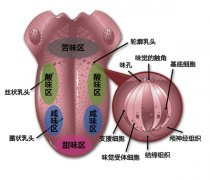Misunderstanding of drinking Coffee in a healthy Life

Misunderstanding 1. Coffee can be addictive]
There is some truth in this statement, but it depends on your understanding of "addiction". For the central nervous system, coffee is an irritant, often drink coffee, the body can have a slight dependence on it. But coffee is not as harmful to physical and mental health as other addictive drugs. But if you suddenly stop drinking coffee, you may have symptoms such as headaches, fatigue, anxiety, irritability, depression and lack of concentration, but these symptoms only last for a few days. (source: Aimei Network)
Misunderstanding 2. Coffee can cause insomnia]
Most people drink coffee six hours before going to bed without affecting their sleep. However, based on the different metabolism of each person, the sensitivity is also different, the amount of coffee drunk is different, the impact is also different. After drinking coffee, people who are too sensitive will not only have insomnia, but also have nervousness and gastrointestinal discomfort.
Misunderstanding 3. Coffee can increase the prevalence of osteoporosis, heart disease and cancer]
Generally speaking, 300 milligrams of caffeine or 3 cups of coffee a day are harmless to your health. But the situation may be different for sensitive people, such as patients with high blood pressure or the elderly.
[myth 4: women who want to get pregnant should not drink coffee]
Studies have shown that a small amount of coffee has nothing to do with pregnancy, miscarriage, birth defects, premature delivery and low birth rates. However, for women who are pregnant or plan to become pregnant, it is best not to consume more than 200 milligrams of caffeine a day, as large amounts of caffeine can lead to miscarriage.
[misunderstanding 5: coffee has dehydration effect]
Coffee will give you the urge to urinate, but the loss will be made up for. Although coffee acts as a mild diuretic, studies have shown that coffee does not cause dehydration.
[myth 6: coffee is harmful to children]
The survey shows that children between the ages of 6 and 9 are safe to eat 22 milligrams of coffee a day. But many children are sensitive to coffee and have temporary anxiety or irritability. And most of the caffeine consumed by children comes from carbonated drinks, energy drinks or sweetened tea. These drinks are rich in sugar, which can lead to obesity in children. So, even if caffeine is harmless, coffee drinks are not good for children.
Important Notice :
前街咖啡 FrontStreet Coffee has moved to new addredd:
FrontStreet Coffee Address: 315,Donghua East Road,GuangZhou
Tel:020 38364473
- Prev

Taste map of coffee tasting coffee and red wine are often used in tasting
Taste refers to the ability to sense the taste of substances, including the taste of food, certain minerals and toxic substances, which is close to the sense of smell, which is also chemically induced. Western experts have traditionally believed that taste consists of four basic flavors: sweet, salty, sour and bitter. On the other hand, experts in the East have identified the fifth flavor. Most
- Next

Boutique coffee, my favorite ice drop coffee in summer.
Ice drop coffee is a very unique and widely acclaimed method of making coffee. It is said that it was first invented by the Dutch and requires the use of a special ice drop coffee pot. If you are patient enough, you can get a good cup of coffee with high purity and unique flavor. Because the acid fat in coffee dissolves inefficiently in cold water, the acidity in the taste of iced coffee will be significantly reduced when tasting ice drop coffee.
Related
- Beginners will see the "Coffee pull flower" guide!
- What is the difference between ice blog purified milk and ordinary milk coffee?
- Why is the Philippines the largest producer of crops in Liberia?
- For coffee extraction, should the fine powder be retained?
- How does extracted espresso fill pressed powder? How much strength does it take to press the powder?
- How to make jasmine cold extract coffee? Is the jasmine + latte good?
- Will this little toy really make the coffee taste better? How does Lily Drip affect coffee extraction?
- Will the action of slapping the filter cup also affect coffee extraction?
- What's the difference between powder-to-water ratio and powder-to-liquid ratio?
- What is the Ethiopian local species? What does it have to do with Heirloom native species?

